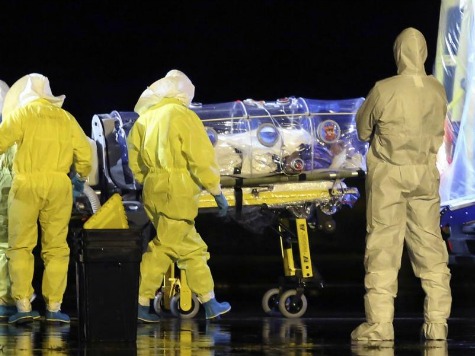Teresa Romero, the Spanish auxiliary nurse who became the first person to contract Ebola outside of Africa, is suing the Health Council of Madrid for 300,000 Euros, as well as filing other lawsuits to demand damages for a number of infractions, from “damage to her name” to the killing of her dog, Excalibur, due to public safety concerns.
Fox News Latino reports that the 300,000 Euro figure comes from the office of Romero and her husband, Javier Limón’s, attorney. The figure translates to about $373,000. While the figure is large in and of itself, some outlets, like Spain’s ABC, are reporting that the final figure in damages sought could be double that– up to 600,000 Euros.
The death of Excalibur, which occurred despite protests in front of Romero’s apartment, is being described in the legal documents as “improvised and taken against medical advice.” Twelve-year-old Excalibur was killed following concerns that dogs may transfer Ebola. The science is unconfirmed on whether a human being can contract the Ebola virus from a dog, though dogs have been known to be able to carry the virus with no ill effects to their health.
In a similar case in the United States, pet dog of Ebola victim Nina Pham, a Cavalier King Charles Spaniel named Bentley, was put in quarantine, much like a person, until he tested negative for Ebola. It is one of the few cases similar to Romero’s in the Western world, and American authorities’ handling of the situation, including Bentley’s prompt return to Pham’s care, could help bolster Romero’s legal argument that her dog need not have been killed to keep Madrid safe.
Romero is also suing for “damage to her name,” particularly against Madrid health chief Javier Rodríguez, who made a number of insulting remarks about Romero publicly while she was in intensive care. Rodríguez joked that Romero “could not have been that bad” after she tested positive for Ebola because she had visited a hair salon, and claimed that “you don’t need a Master’s” to understand cumbersome Ebola personal protective gear. Adding insult to injury, Limón has claimed that his wife was given only 30 minutes to understand how to safely put on and remove protective gear before coming into contact with an Ebola patient.
Perhaps most disparaging to Romero’s reputation, Rodríguez claimed that the auxiliary nurse had been furtive about her disease when coming to the hospital with Ebola-like symptoms and had hidden them from medical officials. There is no evidence publicly to support this claim, made only by Rodríguez and not supported by any nurses or doctors who treated Romero.
Limón had indicated at every step in Romero’s recovery process that the couple were seeking legal damages for their trouble, and for the lack of proper medical leadership that they believe led to Romero’s contamination.

COMMENTS
Please let us know if you're having issues with commenting.